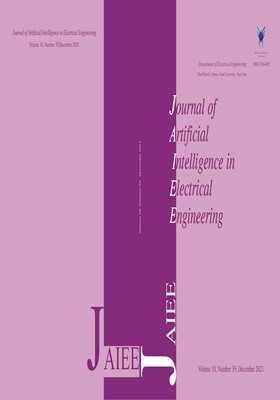Compressed sensing: a review
محورهای موضوعی : journal of Artificial Intelligence in Electrical Engineering
1 - Department of Electrical Engineering, Heris Branch, Islamic Azad University, Heris, Iranbig4
کلید واژه: compressed sensing, Sparsity, Reconstruction algorithm, Sampling matrix,
چکیده مقاله :
Compressed sensing (CS) is a new and promising framework for simultaneous sampling and compression of signals at sub-Nyquist rates. Under certain conditions, the signal can be reconstructed exactly from a small set of measurements via solving an optimization problem. In order to make this possible, compressed sensing is based on two principles of sparsity and incoherence. Compressed sensing takes advantage of the fact that most signals in nature are sparse or compressible, which means that when expressed in a suitable basis called as sparsifying basis, they will have a sparse representation. In the CS, the sparse signal is sampled by a non-adaptive linear sampling matrix. Then, based on the limited measurements obtained from the sampling matrix and using a non-linear algorithm, the original signal is reconstructed. The sparse signal reconstruction problem in the CS is an optimization problem that various algorithms have been proposed to solve it. The compressed sensing has a great application potential and can be used in a wide range of applications. Recently, deep learning has been used to solve the CS problem and its medical applications. In this paper, the generalities of compressed sensing are presented and CS reconstruction algorithms are reviewed. Also, the application of CS in magnetic resonance imaging (MRI) are investigated.


